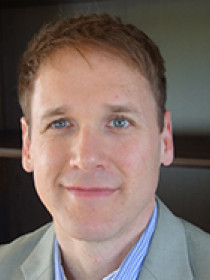
Grant Duwe
Research Director, Minnesota Department of Corrections
Chapter Member: Minneapolis-St. Paul SSN
Areas of Expertise:
Connect with Grant
About Grant
Duwe has more than 50 publications on mass murder and a wide variety of correctional topics. His recent research has focused on the development of recidivism, risk assessment instruments, and the importance of social support in reducing recidivism.
Contributions
Mass Shootings – and What Can Stop Them
Basic Facts Brief,
In the News
Grant Duwe quoted on mass killings and guns by Bonnie Berkowitz, Lazaro Gamio, Denise Lu, Kevin Uhrmacher, and Todd Lindeman, "The Math of Mass Shootings" The Washington Post, June 6, 2017.
Grant Duwe quoted on American gun culture by Ryan Poll, "American Gun Culture and the Political Aesthetic of Keith Maitland's "Tower"" PopMatters, May 4, 2017.
Grant Duwe's research on history of public mass shootings discussed by , "Steve Adler Wrong That First U.S. 'Mass Shooting' Occurred in Austin," Politifact, June 23, 2016.
Grant Duwe quoted on the difference between mass shootings and mass public shootings by Laura J. Nelson, "The Worst Mass Shooting? A Look Back at Massacres in U.S. History" Los Angeles Times, June 14, 2016.
Guest to discuss mass murder rates on Here & Now with Robin Young and Jeremy Hobson, WBUR, Grant Duwe, September 23, 2013.
Publications
"Mass Murder in the United States: A History" (McFarland & Co., 2007).
Presents the most exhaustive research on mass murder to date.
"The Angola Prison Seminary: Effects of Faith-Based Ministry on Identity Transformation, Desistance and Rehabilitation" (with ) (Routledge, 2016).
Explores the impact of faith-based ministry among prisoners at Louisiana's Angola Prison.
"Evaluating Restorative Justice Circles of Support and Accountability" (with ). International Journal of Offender Therapy and Comparative Criminology (2016).
Describes the expressive and instrumental social support required and received, and its relationship to key outcomes, by sex offenders who participate in Circles of Support and Accountability, a restorative justice reentry program in Minnesota.